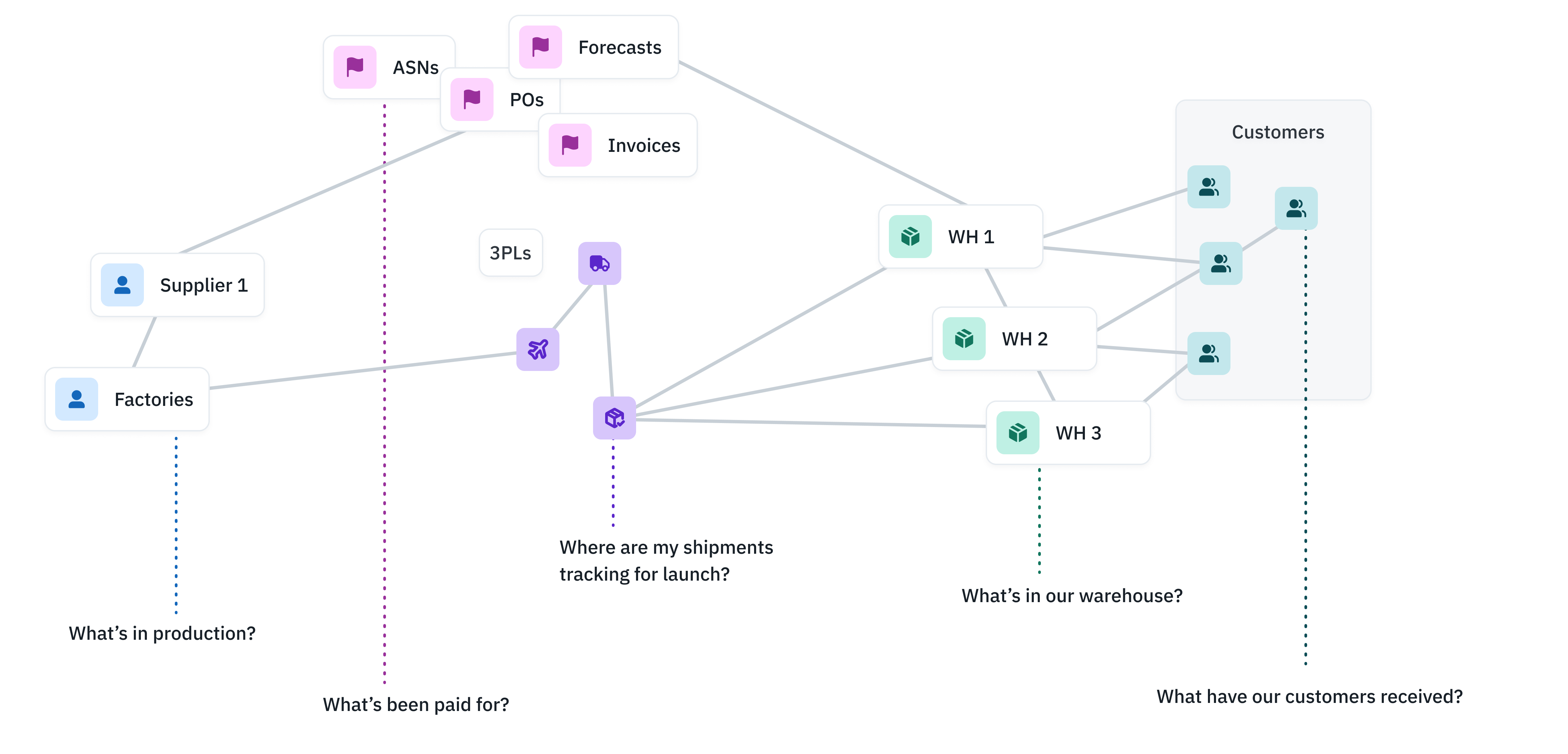In this article
Microsoft recently announced the end of Dynamics GP product support, with updates ending December 31, 2029, and security patches continuing until April 30, 2031. While Microsoft is pushing customers toward Business Central, this transition presents an opportunity to evaluate whether your current ERP truly addresses your operational complexity.
Honoring the Past, Embracing the Future
For nearly three decades, Dynamics GP has been the reliable workhorse for thousands of businesses. Its familiar green screens and menu-driven interfaces have helped finance and operations teams maintain control over increasingly complex business environments. GP got many things right: robust accounting foundations, reliable transaction processing, and a logical approach to business operations.
However, while the principles of good business operations haven't changed, technology has evolved dramatically. Today's systems offer:
- Modern interfaces that maintain Excel-like simplicity while eliminating dated design
- Familiar operational concepts presented in intuitive layouts that reduce training time
- The same powerful functionality but with fewer clicks and manual steps
- Mobile access that brings operational control beyond the back office
The fundamental shift isn't about replacing what works—it's about preserving the operational principles that made GP valuable while leveraging today's technology to make those principles easier to implement.

Business Central Isn't the Only Answer
Microsoft's recommended migration path leads to Business Central—a logical step for basic operations but potentially limiting for businesses with complex workflows, custom processes, or industry-specific requirements.
While Business Central offers some configurability through Power Platform and extensions, it is primarily designed around standardized best-practice workflows. Businesses with complex, custom processes may face friction adapting their operations to fit its structure.
For operations teams managing intricate processes across multiple departments, this approach can create significant friction.
Bridging the Gap Between Legacy and Modern Modules
As businesses transition from GP, they’re evaluating how modern operational systems can enhance their existing processes while filling critical gaps.
Modularity, Reinvented
Like GP, Doss takes a modular approach—but with key differences that reflect modern business needs:
- Modular Yet Integrated: Each functional area maintains its focus while sharing a common data foundation
- Enhanced Interoperability: Modules designed to work seamlessly with both internal and external systems
- Configurable Business Logic: Tailor modules to your specific requirements without custom code
- Bridge Existing Systems: Fill gaps where your existing tools fall short instead of replacing everything
%201.png)
Key Operational Areas Reimagined
Inventory Management: Modern inventory modules provide multi-channel visibility, lot tracking, and demand forecasting capabilities that weren't possible in earlier architectures.
Procurement: Today’s procurement solutions include vendor portals, automated approval workflows, and spend analysis tools that streamline purchasing processes.
Order Processing: Contemporary order management extends beyond basic entry to encompass omni-channel fulfillment, customer self-service, and integrated shipping logic.
Financial Operations: Modern financial modules maintain compliance while providing real-time reporting, automated reconciliation, and predictive cash flow analysis.

What Operations Leaders Should Consider Now
With 4+ years until GP support ends, you have time to implement a solution that truly fits your operations rather than rushing into another vendor's migration path.
Smart operations leaders are putting operational continuity into practice by implementing systems that mirror existing processes rather than forcing disruptive change.
Many ERP vendors are shifting to cloud-first models, phasing out legacy on-premise solutions. While this transition has advantages, it may also force businesses into platforms that don’t fully align with their operational needs. Choosing a configurable, modular system like Doss ensures long-term control over your ERP environment, rather than being locked into a vendor-driven roadmap.
One thing Great Plains did well early on was modularity. Doss is a highly configurable platform where business logic is controlled by you, not predetermined by your software vendor. As a technology partner, Doss is designed to give your company the longevity and visibility you need to run operations efficiently. You'll get only what you need, and nothing you don't.
Finding an ERP System That Scales With Your Business
The sunsetting of Dynamics GP isn't just about replacing software—it’s an opportunity to implement systems designed for the future of your business, not just its current state. Learn more about Doss vs. Dynamics
Architecture Built for Scale and Change
The fundamental difference between legacy systems and modern adaptive platforms like Doss lies in how they handle inevitable business evolution:
- Configurable Business Logic: Change operational rules without code as your business processes evolve
- Elastic Infrastructure: Scale from hundreds to millions of transactions without performance degradation
- Composable Process Design: Assemble and reassemble workflows as your organization structure changes
- Future-Ready Foundation: Built on technologies with long roadmaps rather than legacy stacks

Beyond Technology: Process Evolution Strategy
Start With Core Processes, Expand Organically: Begin with your most critical operations and expand your digital footprint as processes mature.
Design for Your Future Scale: Implement systems that accommodate your 5-year growth plan, not just current volume.
Build Process Flexibility: Create operations that adapt to changing market conditions without requiring system redesign.
Preserve Institutional Knowledge: Capture operational expertise in configurable rules rather than rigid code or employee memory.
Operational Resilience Beyond the Sunset
The next decade will bring unprecedented change to business operations—from AI-driven automation to new regulatory frameworks and evolving customer expectations.
The systems you implement today must not only solve current challenges but provide the foundation for operational evolution. The most successful transitions won’t be to another rigid ERP, but to adaptive platforms that grow with your business—providing the stability of standardized processes with the flexibility to adapt as your operation evolves.
The question isn’t whether your business will change after GP’s sunset, but whether your systems will be ready when it does.
Doss is an adaptive ERP built specifically for businesses with complex operations. Our event-based architecture, configurable workflow engine, and integration capabilities provide a robust foundation for operations of any complexity.







.svg)




